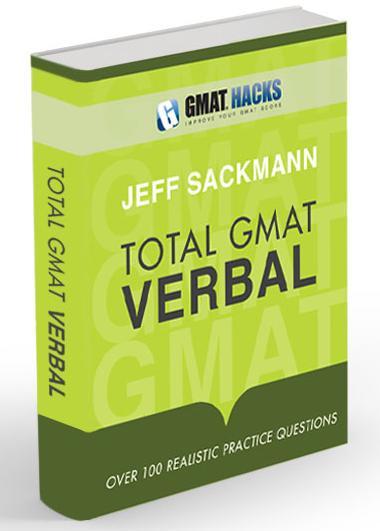
Bookshelf
|
|
Total GMAT Math Jeff's complete Quant guide, on sale now! |
|
|
Total GMAT Verbal Everything you need to ace GMAT Verbal! |
1,800 Practice Math Questions
Buy Jeff's books at Amazon.com

GMAT Official Guide, with IR
OG Math | OG Verbal
OG12 & Quant Rev solutions!
GMAT Question of the Day
Beginner's Guide to the GMAT
GMAT Hacks Affiliate Program

Recent Hacks

Categories
- General Study Tips
- Goals and Planning
- CAT Strategy
- The Mental Game
- GMAT Math Strategy
- GMAT Math Topics
- Mental Math
- Data Sufficiency
- Critical Reasoning
- Reading Comprehension
- Sentence Correction
- Analytical Writing Assessment
- Integrated Reasoning
- IR Explained
- Business School Admissions
- GMAT Prep Resources
- Practice Questions
- Total GMAT Math
- Total GMAT Verbal
- GMAT 111

Getting Serious About GMAT Test Security
May 8, 2012
| You should follow me on Twitter. While you're at it, take a moment to subscribe to GMAT Hacks via RSS or Email. |
The GMAT is serious about test security. You probably already knew that, but I suspect that a recent summary published by the GMAC, the organization that administers the exam, might surprise you.
There are two issues of particular concern to the GMAC. The first is that when a score is associated with a person, it really belongs to that person. If John Smith submits an application to Stanford, the GMAC wants to be able to absolutely guarantee that John Smith earned his own GMAT score. In the past, people have tried to take tests under a friend's name, or approached test experts such as tutors to sit for the exam in their place.
(I have been working with GMAT students for over 10 years now, and no one has ever approached me. Since I've interacted with thousands of prospective test-takers, I suspect that some tutors invite such approaches.)
The second concern is that no student is exposed to actual "live" test questions before they sit for the exam. For decades, major test-preparation companies have sent their employees to take standardized tests in order to "research" the content of the exams as they evolve. "Research" is one thing, but what's stopping those employees from offering their students verbatim copies of the questions they saw?
This issue explains one of the more annoying quirks of the GMAT experience: the dry-erase pen and small number of laminated sheets for scratch work. A decade ago, some people would take very extensive notes, then try to sneak out with their scratch paper. With those extensive notes, they could share test material with their friends, students, or employers. No more.
But still, some people have fantastic memorization skills. Often, one of my students would return from taking the GMAT with one or two quant questions they remembered. Most of us can remember a few questions--perhaps more if we are taking the test with the specific goal of memorizing test material. Multiply those memories by the size of the GMAT-studying population of the internet, and you have a scandal like Scoretop several years back, where a website gathered hundreds of questions purported to be "live."
Even now, you will occasionally see a live question on major GMAT forums. (You will never see any on GMAT Hacks.)
For an unethical test taker, the value of seeing live questions before the exam is enormous. So much so that, apparently, some tutors offer to take the exam (at the student's expense, of course) and then report as many details from the exam as possible. This isn't a very smart use of money, as the GMAT uses several hundred questions at a time. The problems the tutor sees may not overlap at all with the problems the student sees.
(Again, this is not something a student has ever asked me to do. A few "bad eggs" in the tutoring community are surely encouraging students to spend their money toward unethical ends.)
The good news is: The rules are clear. Take the test under your own name. Don't go looking for live test questions before the exam. Don't share what you saw on the exam after you're finished.
And if someone approaches you purporting to offer an edge that breaks one of those rules, contact GMAT test security. Even if you say no, that person will doubtless continue their efforts. The bad eggs out there are working hard to get their clients into the very same MBA programs that you're interested in. In theory, standardized tests are fair for everyone, as long as everyone plays by the same rules.
About the author: Jeff Sackmann has written many GMAT preparation books, including the popular Total GMAT Math, Total GMAT Verbal, and GMAT 111. He has also created explanations for problems in The Official Guide, as well as 1,800 practice GMAT math questions.
 |
Total GMAT Verbal
The comprehensive guide to the GMAT Verbal section. Recognize, dissect, and master every question type
you'll face on the test. Everything you need, all in one place, including 100+ realistic practice questions. |